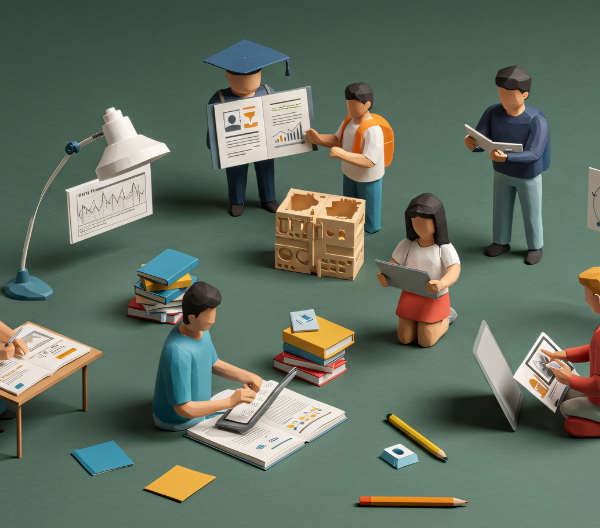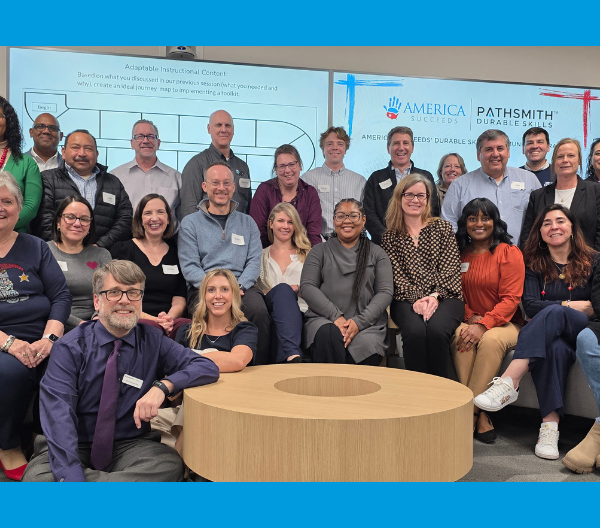In the wake of the pandemic, the landscape of education has undergone seismic shifts. The tsunami of challenges facing educators has illuminated not just the resilience and adaptability of our educational systems but also the profound gaps and opportunities for modernization.
For businesses, investing in improving education is not just a philanthropic endeavor – it’s a strategic imperative that can significantly boost their bottom line. In this blog, we’ll dive into this issue in-depth, explaining why modernizing education systems can lead to a brighter future for American businesses. Stick with us as we discuss this important topic.
The Business Impact: Understanding the Economic Repercussions of Education Disruptions
The pandemic not only disrupted educational systems, but it also magnified existing challenges, with far-reaching implications for the business world. Highlighted in America Succeeds’ No Worker Left Behind report, learning disruptions caused by the pandemic have profound economic consequences. On average, the student population impacted by COVID-19 will experience a 2 to 9 percent reduction in lifetime income, depending on the state they received their education.
This projected loss in earnings reflects a deeper issue – a future workforce that might lack critical skills and knowledge due to interrupted learning.
For businesses, this translates into a potentially less skilled labor pool, which can impact productivity, innovation, and overall economic growth. Companies may face increased costs in training and development to bridge these skill gaps, alongside challenges in filling specialized roles that demand a high level of education and expertise.
Moreover, this educational setback could lead to a wider skills mismatch in the economy. As technological advancements and industry demands evolve, the gap between the skills taught in schools and those required in the workplace could widen, unless educational systems adapt swiftly to incorporate Durable Skills as a part of curriculum. This mismatch poses a risk for businesses in terms of finding the right talent to drive innovation and stay competitive.
The impact of educational disruptions on businesses underscores the need for corporate involvement in education reform and support. By investing in educational initiatives, companies can help mitigate these long-term economic risks, ensuring a steady pipeline of skilled and well-prepared workers. This investment not only benefits the future workforce but also contributes to a more robust and resilient economy, from which businesses stand to gain significantly.
Solutions for Investing in Education Pathways for Workforce Preparedness
Addressing the profound impact of educational disruptions necessitates a proactive and solution-oriented approach from the business community. It’s increasingly clear that expecting students to transition seamlessly from school to the workforce, especially in a post-pandemic world, is unrealistic without significant intervention and support. The solution lies in businesses actively investing in and shaping education pathways that align with the skills and competencies needed in the modern workforce.
Strategic Partnerships and Collaborations
Businesses can foster partnerships with educational institutions to develop curricula and programs that reflect the current and future needs of the industry. These collaborations can help ensure that the skills taught in schools are directly applicable and valuable in the workplace. By offering insights, resources, and expertise, businesses can play a critical role in shaping a curriculum that is both relevant and forward-thinking.
Work-Based Learning Opportunities
Offering work-based learning opportunities such as internships, apprenticeships, and co-op programs is another powerful solution. These programs provide students with hands-on experience, bridging the gap between theoretical knowledge and practical application. They also allow students to gain a better understanding of the workplace, develop essential durable skills, and build a professional network, all of which enhance their employability upon graduation.
Supporting Alternative Educational Pathways
Recognizing and supporting non-traditional educational pathways is also vital. This includes valuing credentials from vocational schools, short-term training providers, and certification programs. By acknowledging these alternative forms of education, businesses can tap into a diverse talent pool with a range of experiences and skills.
Advocacy and Policy Engagement
Finally, businesses can engage in advocacy and policy development to support reforms that strengthen our overall education system and ensure excellent opportunities are available to all students. By lending their voice and influence, they can help shape policies that reflect business values like accountability, transparency, choice, and putting the customer first to create a more robust pipeline of workforce-ready graduates and future leaders.
In conclusion, by investing in and supporting a variety of education pathways, businesses can not only address the immediate challenge of learning disruptions but also contribute to the cultivation of a well-prepared, skilled workforce. This investment in education is an investment in their own future, ensuring a steady flow of talented individuals ready to meet the challenges of a dynamic business landscape.
Businesses, We Need Your Help!
Supporting education modernization is a win-win for businesses and society. By investing in educational initiatives, companies not only contribute to creating a more skilled workforce but also enhance their brand reputation, foster goodwill in the community, and create a more prosperous society. From partnerships with educational institutions to funding innovative educational programs, there are numerous ways for businesses to get involved.
The time to act is now. By supporting education modernization, businesses can play a pivotal role in shaping a resilient, skilled, and innovative workforce, driving economic growth, and ultimately boosting their bottom line.
For more insights on how your business can contribute to education modernization, visit our blog and join the conversation on our LinkedIn page.




